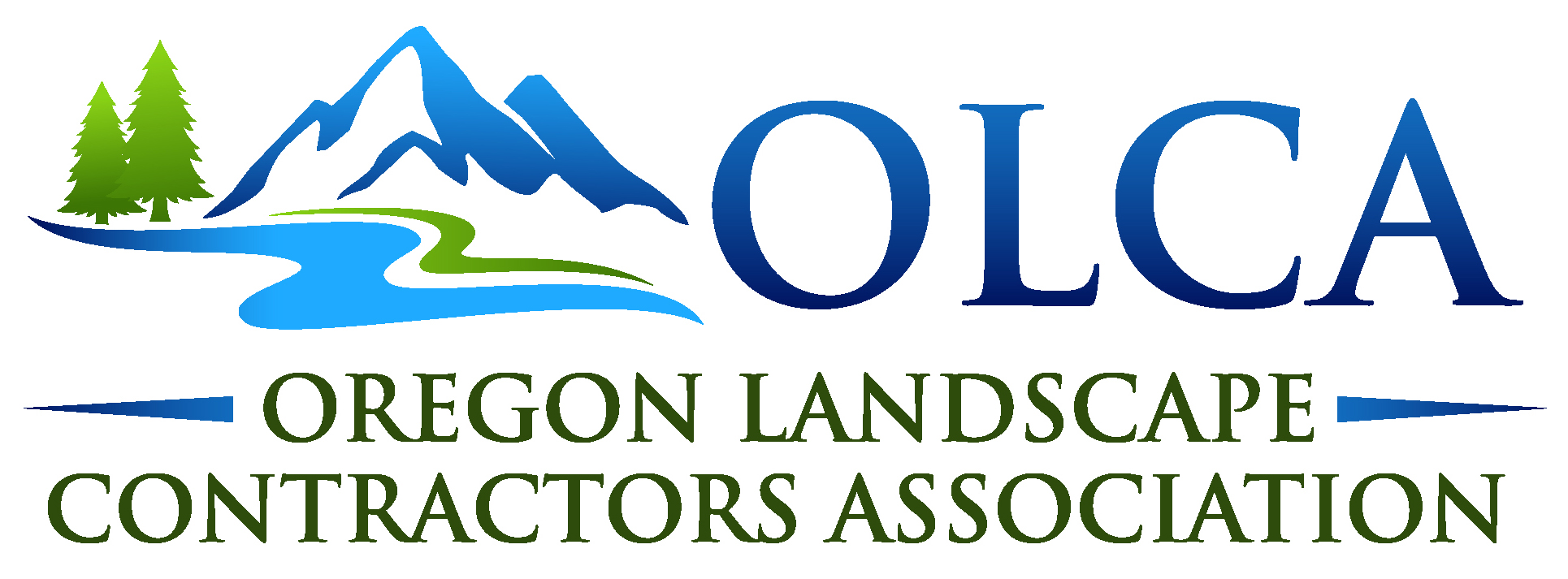COVID-19 UpdateFrom OLCA President, Jeremy Tobin & OLCA Lobbyist, Bill CrossOn March 23, Governor Kate Brown a Stay Home Executive Order to reduce the spread of coronavirus in Oregon. This new policy orders Oregonians to stay in their homes whenever possible and includes stronger language around approved activities and business activities. The order is modeled after the edicts of other states and cities though is not quite as sweeping in terms of the businesses that will be required to close. The order includes a number of exceptions for businesses and other services that are deemed essential including landscaping. Stores have until midnight, March 24, to comply and offices have until March 25. We know these are trying and uncertain times for all of us. We have been diligently working with State and Local authorities to ensure that our businesses can safely operate during potential stay at home orders. As the situation is rapidly changing, please use this resource page for updates. We will continue to work for our industry and will keep you informed as best we can during this time. Stay safe and be well. Jeremy Tobin New COVID-19 Transportation GuidelinesOLCA has been informed by Oregon OSHA that they are recommending the landscape and construction industry follow the transportation guidelines in the Temporary Administrative Rule Addressing the COVID-19 Public Health Emergency in Labor Housing and Agricultural Employment which allow for more than 1 person per vehicle if they can maintain 3 feet distance and wear a mask or cloth facial coverings over their nose and mouth. Temporary Administrative Rule Addressing the COVID-19 Public Health Emergency in Labor Housing and Agricultural Employment (13) Section 3: Disease prevention in employer-provided transportation (a) During the current emergency and for activities covered by Section 1 of this rule, employers must ensure that the following disease prevention measures are implemented, at a minimum, when transportation is provided to and from the workplace or used to move individuals between workplaces: (A) The vehicle operator and any passengers must be separated by at least 3 feet during the operation of the vehicle. Seats that do not allow for such separation cannot be used, regardless of the vehicle’s normal capacity. (b) For workers who may commute to and from the worksite with individuals outside their household, the employer must advise them of the risks presented by close contact and encourage them to employ practices similar to those described in subsection (1) above. For more information or to read the full version of the Temporary rule visit the Oregon OSHA COVID-19 Resource Page. A note from OLCA's President, Jeremy TobIn:
Additional $15M - SAIF Covid-19 Safety FundApril 13, 2020 SAIF’s coronavirus worker safety fund is again accepting applications after the fund was refreshed today with $15 million. Please submit applications as soon as possible, as the first round of funding for the program was used within five business days. Saif will accept submissions from all SAIF policyholders until all funds have been expended or until the fund is terminated. They don’t anticipate additional funding. The fund is designed to support employee safety, reduce injuries, and decrease exposures by helping businesses impacted by the coronavirus. Eligible expenses could include:
More information, including the application, can be found at: https://www.saif.com/employer-guide/coronavirus-and-workers-compensation/coronavirus-worker-safety-fund.html
Looking for COVID-19 Resources in Washington?Check out Washington Association of Landscape Professionals COVID-19 Resource Page! Construction Industry and State Agencies Partner to Keep Workers Safe Amid COVID-19The Oregon Home Builders Association (OHBA) and multiple state agencies partnered on a news release on COVID-19 jobsite recommendations for the construction industry. The site also has a COVID-19 webpage with more information for contractors. SAIF's Coronavirus Worker Safety Fund - Accepting ApplicationsLast week SAIF announced that their board of directors had approved a $10 million coronavirus worker safety fund. The fund is designed to promote employee safety, reduce injuries, and decrease exposures by helping businesses impacted by the coronavirus. The application is now available at saif.com/safetyfund, and they will accept submissions until all funds have been expended or until the fund is terminated. The fund helps pay for expenses tied to preventing the spread of coronavirus at businesses or mitigating other coronavirus-related costs. Funds may be approved for costs related to worksite cleaning and disinfection, reopening businesses safely after a coronavirus-related closure, workspace modification or redesign related to safety or social distancing, and mental health and wellness initiatives. If you have questions specific to the safety fund, please contact [email protected]. NALP Operating Guidelines ResourceOur industry has a duty to stop the spread of COVID-19. Today, NALP released new operating guidelines to be used as a reference to help you work in a way that reduces the spread of the virus. $2T Stimulus package approvedThe Coronavirus (COVID-19) pandemic has put a major strain on every aspect of daily life around the world, including the United States. As spread of the disease shows no sign of slowing down, there is a steadily increasing concern in the United States regarding the health and wellness of not only our citizens, but the economy as well. In response, the United States Congress has been negotiating a historic stimulus package to address the havoc caused by the pandemic. It appears Congress’ hard work has paid off, as they just passed a $2 trillion package to provide a jolt to the economy reeling from the deadly virus. All Americans would do well to understand the package’s provisions, as it will offer direct relief to businesses and individuals alike. Click HERE for more information. Oregon State Police Emergency Declaration Enforcement FAQDate 03/24/2020 OLCA Member Shared ResourcesThe following resources have been shared by OLCA members to help fellow landscape companies. The positions expressed are solely their own.
Families First Coronavirus Response Act (FFCRA)LaPorte, OLCA Member Endorsed Program Provider, has provided a slide deck that their team has assembled from several credible sources. They have built this presentation, in attempt to educate the industry all on recent legislation around Emergency Paid Sick Leave, Covid-19 testing, tax implications, etc. They hope this speaks to many of the questions/concerns you may be having. Click HERE to view the presentation. Adam Harris, CIC NALP Take Action on NEW Grassroots Letter to LegislatorsAs states work to contain the COVID-19 epidemic, policies are put into place that define what businesses are essential. Landscaping is not explicitly mentioned in many of these documents, rather the services that landscapers provide are inferred. We need your help to further confirm these policies so that landscapers can continue to provide our essential services that keep properties safe, sanitary, and in operation. Using this link, you can quickly and easily message all of your state elected officials, asking them to support landscape contractors as essential businesses. COVID-19 FlyersSocial Distancing Flyer (English): https://sharedsystems.dhsoha.state.or.us/DHSForms/Served/le2268.pdf For more flyers from the CDC, use the following link: https://www.cdc.gov/coronavirus/2019-ncov/communication/factsheets.html For more flyers from the OHA, use the following link: https://govstatus.egov.com/OR-OHA-COVID-19 From Governor Kate BrownExecutive Order: Stay Home Except for Essential NeedsOn March 23, I issued Executive Order 20-12, effective immediately until further notice. This is a statewide order. Failure to comply with the order will be considered an immediate danger to public health. For more information, see the latest press release. In short, here is what is allowed and what is not. If you’re not sure about an activity, skip it. Staying at home as much as possible during this time will save lives. Allowed (must keep 6 feet from others):
Not Allowed:
For more information go to: https://govstatus.egov.com/or-covid-19 Social Distancing ProtocolsThe Oregon Health Authority (OHA) and the Centers for Disease Control and Prevention (CDC) have issued guidelines that are routinely updated. They can also be accessed in Spanish. Please check both sources for updates. The basic social distancing and safety protocols you should implement are:
Landscape Contractors BoardLCB’s Website Limited In-Person Services – Please call in advance Oregon Department of AgricultureODA has created a specific webpage oda.direct/COVID19 to provide a variety of information for all our partners. Check frequently as information will be updated. Oregon Employment DepartmentThe health and safety of workplaces is of utmost importance to the Oregon Employment Department. This summary on this webpage provides general guidance to employers, workers, and job seekers who may be impacted by the COVID-19 coronavirus: https://www.oregon.gov/employ/Pages/COVID-19.aspx?utm_medium=email&utm_source=govdelivery Coronavirus (COVID-19) Resources for Oregon BusinessesResources for Oregon businesses looking for assistance in the event of local, regional, or statewide economic impacts due to identified disasters. More details can be found at https://www.oregon4biz.com/Coronavirus-Information/. Business Planning, Counseling, and General Resources
Financial AssistanceWork with your financial institution to explore refinancing, deferred payments, and other appropriate tools for your situation. General Assistance
“Nearly” Bank QualifiedFor businesses with limited time in operations and collateral, obtaining private financing can be challenging. If your financial institution turns you down, inquire about these programs offered by the federal government and the state of Oregon. Small Business Administration (SBA)
United States Department of Agriculture Business Oregon Alternative LendersThese entities offer direct loans to businesses that do not qualify for loans from banks and credit unions. They are usually community-based organizations that can generally offer loans from $5,000 to $250,000 and often have more flexible repayment terms. Business Oregon Community Development Financial Institution Fund (CDFI) Oregon’s Economic Development Districts Other Micro Lenders COVID-19 Tax Relief Options NALP Coronavirus News & ResourcesNEW State by State GuidanceFor the latest business operating regulations, visit our newly launched, and regularly updated, web page with the latest information about the situation in each state. The Latest News & Resources
Federal Resources
Member Shared ResourcesMany companies are scrambling to deal with this quickly evolving situation. The following resources have been shared by NALP members to help fellow landscape companies. The positions expressed are solely their own. If you would like to share your company's resources, or would like to suggest resources that could help your business, let us know via email at [email protected]. Join the Facebook Discussion GroupWant to talk with others about coronavirus planning at landscape or lawn care companies? Join our newly created, private Facebook GroupSafety
Business PlanningThe CDC suggests that employers plan to be able to respond in a flexible way to varying levels of severity of a possible outbreak and be prepared to refine business response plans as needed and communicate regularly with employees. A few things to consider include ways to reduce transmission among staff, protecting people who are at higher risk for adverse health complications, maintaining business operations, and minimizing adverse effects on other entities in their supply chains.Key considerations
Irrigation AssociationThe Irrigation Association understands and supports the aggressive preventive measures being taken across the globe as a result of the COVID-19 virus. This is an unprecedented situation, which has required many of us to adjust our normal practices. We are monitoring the development, regulations and guidance surrounding the COVID-19 pandemic. Use this link to access the Irrigation Association COVID-19 Resources page.
|

 (planning, managing cash flow, insurance, staffing)
(planning, managing cash flow, insurance, staffing)

